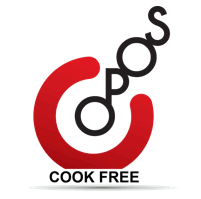Techniques – #O for Oil Free Cooking
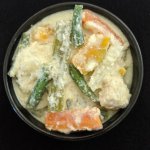
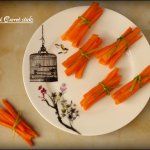
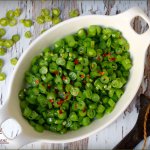
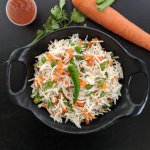
We were trying numerous ways to minimise/ eliminate oil for various reasons :
1. Members facing health issues wanted to have the option of going oil-free.
2. Refined oils are highly processed. Chemical solvents are used to extract oil, bleach it and clarify it. In OPOS, we try to eliminate the use of highly processed foodstuffs.
3. Refined oils contain preservatives. The intense refining makes many oils less stable and reduces their shelf life. Preservatives like (BHA – butylated hydroxyanisole and BHT butylated hydroxytoluene) are mixed in to keep them from oxidising and becoming rancid. In OPOS, we try to avoid using chemical laden ingredients.
Contrary to popular perception, oil is not evil. Oil is essential for a healthy diet. But oil is a very concentrated source of energy. Unless used in moderation, it leads to trouble. If you avoid refined oils, and use only cold pressed oils in moderation along with a low carb diet, you have nothing to worry, assuming you have a healthy lifestyle. It is not the oil alone, but the deadly combination of highly processed carbs & highly refined oil that lie at the root of most diet related problems.
Let us understand why oil is so prized in cooking, and then try to figure out ways to minimise/ eliminate it.
Oil/ Fat serves four purposes in traditional cooking.
1. Oil helps in browning – Oil can be heated to higher temperatures than water. This high temperature promotes the browning reactions, filling food with flavour.
2. Oil absorbs and redistributes flavour – Oil absorbs fat soluble flavours from spices and distributes them throughout the dish. This is the reason most Indian dishes rely on tadka to infuse flavour.
3. Oil gives a creamy, rich mouth feel – Food cooked without oil tastes dry and ‘poor’
4. Oil lubricates – In many traditional recipes, oil is used to preventing food from sticking to the pan.
Because of all these factors, oil is an indispensable part of Indian cuisine. Many chefs firmly believe that an overdose of fat is essential for taste. Not true at all.
To minimise eliminate oil usage, we had to find ways to address all these points.
1. Oil helps in browning – Both caramelisation and Maillard reactions do not require oil. Just heat. Anyone who has cooked sugar into caramel knows this. The same principle was applied in caramelising onions and tomatoes without using a drop of oil. We found that there was no compromise in taste, texture or flavour. Using the principle of controlled evaporation, recipes were structured so that the heating continued after most of the water had evaporated away. This accelerated the Maillard reaction, promoting browning and eliminating shallow frying with lots of oil.
2. Oil absorbs & redistributes flavour from spices – Using the bottled tadka hack, an intensely infused oil was stored. We found that tiny quantities of this infused oil was enough to add flavour. Just a drop or two was sufficient to flavour a dish unlike traditional cooking where a few tsp oil was mandatory for any tadka!
3. Oil gives a creamy mouthfeel – The emulsification technique guaranteed an extra creamy mouthfeel using a fraction of the oil. As the oil droplets get dispersed into a liquid medium, they convert it into ‘cream’. Using infused oils makes the ‘cream’ a lot more flavourful too!
Nut paste/ Yogurt/ coconut milk were included in recipes to make oil optional. Even recipes like Dum biriyani were cooked with no added oil. Yogurt/ coconut milk/ caramelised onions were added as a substitute to ensure the moistness & richness were not lost by skipping oil.
4. Oil serves as a lubricant, preventing food from sticking. – In traditional cooking, we either need to use non stick pans/ cook with a continuous addition of water, if we choose to skip oil.
We do not have that luxury in OPOS and so had to figure out an alternative way. We found that by adding a thin layer of water at the bottom prevented food from sticking. All OPOS recipes (except ones that call for watery vegetables, onions, tomatoes as the bottom layer) were restandardised with a thin layer of water.
By starting the layering with water, the food sticking problem was minimised. As we do not stir in OPOS, the layers remained intact and food never came into contact directly with the hot base. This thin water layer stayed as a buffer till pressure built up. Once pressure builds, the temperature drops to 120 degrees and the threat of food burning/ sticking minimises greatly.
The difference is remarkable in recipes like halwas, thokkus and many curry bases, which call for a huge amount of oil/ fat in traditional recipes. They could now be made completely oil free, if desired ! The ingredients and cooking times and layering were so balanced that cooking just stopped short of burning/ sticking.
